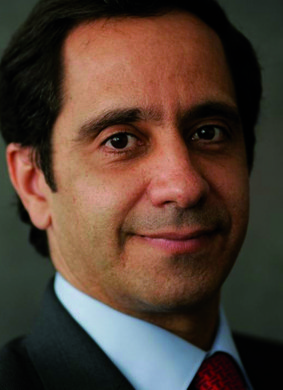Getting the price right on both sides of the table
Negotiations over price remain the key area of tension between in-house lawyers and their external counsel, participants at a recent workshop heard.
The training session, hosted in Madrid by IE Law School, was attended by over 50 Heads of Legal as well as law firm Managing Partners from across Barcelona, Lisbon and Madrid.
The current requirement on in-house lawyers to get “more from less” is placing a new emphasis on the cost management and effective delivery of legal services, participants heard. Increasingly, services need to be provided within specific timeframes and at pre-agreed costs, posing new challenges for planning, project management and service delivery.
Inevitably, the downward pressure on costs is also requiring new and creative approaches to the pricing. Traditional approaches to the lawyer-client relationship, where a law firm quite naturally wants to increase client expenditure, result in, at best, what are inefficient and unsatisfactory relationships and, at worst, a systemic tension.
At the session, Carlos de la Pedraja, IE Law School’s Head of Executive Education, launched the 2012 intake of the Lawyers’ Management Programme (LMP) – their flagship leadership programme held annually in Madrid and London.
In addition to experts from IE Law and Business Schools, the global faculty includes lecturers from Georgetown and Harvard Law Schools in the US as well as the University of Oxford in England. Participants also gain new insight from Managing Partners of some of the world’s most successful business and law firms, as well as the Global Heads of Legal at organisations such as Nokia and Vodafone.
The launch session was led by Kevin Doolan, Head of Client Relations with Eversheds in London, a world recognised pricing expert and member of the LMP faculty.
Participants followed an LMP case study whereby an in-house lawyer asks their preferred law firm for an immediate 15 percent across-the-board discount on their fees, a scenario based on a real situation. In the scenario, the law firm has only a few hours to agree the reduction or lose a major client.
“Such an approach, where the in-house lawyer asks for a simple percentage reduction in fees is in nobody’s best interest,” he says. “A very different, and more sophisticated, conversation is required.”
In fact, Doolan’s own research suggests that an across the board reduction of the hourly fee, does not necessarily translate into a saving for the client.
“In-house lawyers who demanded a discount at the start of the financial crisis, have told me since that their annual external legal fees in fact remain the same – law firms just expand the amount of time they spend on work. Often through placing more junior, and less expensive, lawyers on the work.”
Eversheds often agree to manage a greater volume of a client’s legal work, receiving a percentage of the save in legal expenditure. At the root of the issue are the inherent tensions in the traditional lawyer-client relationship: the client will seek to reduce, and the law firm increase, the amount of work on each project. The use of the billable hour has served to inflate these tensions, he says.
His own firm has experimented successfully with alternative billing models, for which he received the prestigious Financial Times Innovative Lawyers Award in 2010.
“In-house lawyers benefit from having a better understanding of when and in what circumstances they should complete legal work internally or pass it to an external law firm. Once they decide to source work externally, there needs to be more detailed conversations about where the client feels external lawyers can add value.”
Participants heard, however, that this is easier said than done – clients require certainty as to the process and costs of every engagement while lawyers do not typically have the project management skills this requires. For Kevin, this necessitates agreeing a plan and budget in advance and speaking with the client should further issues arise.
Launched as a response to the economic downturn, the LMP provides participants with the tools they need to better understand the current threats and opportunities to their own business – against a backdrop of the ongoing changes in the delivery of legal services. Lawyers have already attended from Latin America, the US, UK, Europe and Asia.
It has been designed for those who currently are, or have the potential to, manage and lead groups of lawyers. The job titles and specific responsibilities vary across different jurisdictions, although many are Managing Partners, Practice or Office Managers, Heads of Legal or Company Secretaries.
Skills sessions address the parallel leadership challenges, understanding the values and motivation of lawyers during such difficult times. Participants explore their own leadership style as well as those they lead.
The next LMP intake is in February 2012, with the selection process starting this November.
For further information: marta.urdiales@ie.edu.











